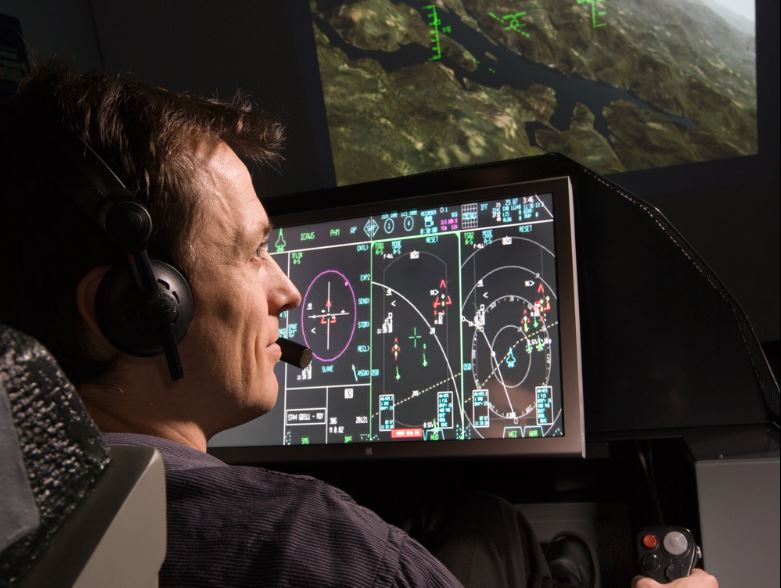
Improving the cognitive performance of fighters in war is a minefield of possibility and Flinders University researchers are investigating the use of augmented reality (AR) to expand the power of the brain.
In partnership with DST Group and the Australian Army, Flinders University Professor of Psychology Mike Nicholls and colleague Flinders Brain and Cognition Lab researcher Dr Oren Griffiths are working on an AR system to reduce the attention burden and increase performance of defence personnel.
“Highly demanding tasks, such as monitoring for threats and operating complex machinery and technologies, is putting an ever-increasing amount of information processing on military personnel,” says Professor Nicholls, Flinders Executive Dean (Research) at Flinders’ College of Education, Psychology and Social Work.
“The promise of AR solutions has yet to be realised, with some research showing it can impair performance, rather than improve it.”
Cognitive neuroscientist Dr Griffiths points out that one AR study with military personnel showed improved detection for cued events, but led to misses on unexpected events.
Similarly, onscreen overlays have led surgeons to miss critical implications.
“The common link in these situations is that AR cues can capture the user’s attention so effectively that critical, unanticipated events can be missed,” he says.
“Many of these errors are invisible to eye-gaze because those who miss the target are just as likely to gaze at it as those who notice it.”
The project will focus on investigating this “looked but didn’t see” errors that can be caused by AR cueing. A novel brain-based measure of attention, which can operates independently of gaze, will be used in the study, says Dr Griffiths, a Tall Poppy of Science at Flinders University.
The project, ‘Optimising the use of augmented reality (Helped, not hindered)’, is being supported by the Human Performance Research network (or HPRnet) at DST Group and sponsored by the Army.
Launched in 2016, HPRnet is expanding to address a new set of human performance research priorities in the Army, Navy and Air Force.
“The performance of its people and their ability to adapt and prevail in future operational scenarios is critical in building and sustaining the Australian Defence Force’s capability edge,” says Dr Nick Beagley, Program Lead Enhanced Human Performance at Defence Science and Technology.
HPRnet brings together leading research teams from academic institutions across Australia to provide cross-disciplinary expertise to enhance the performance, physically and cognitively, of military personnel.
In addition to the traditional four-year studies, a smaller amount of funding has been allocated to address a rolling set of 1-2 year studies targeted at more specific outcomes.
HPRnet also provides a mechanism for setting up studies funded directly by military stakeholders. DST anticipates putting out such specific calls for proposals throughout the program.

